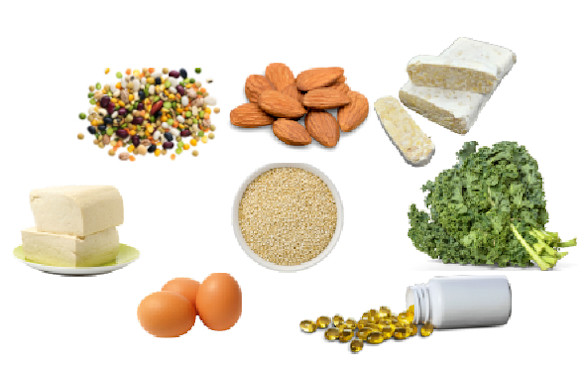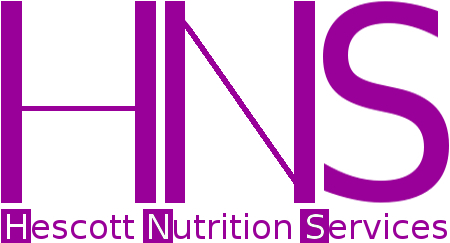.
Welcome to my blog!
.
What is Living Dairy-free?
By Hescott Nutrition Services | posted in April 2023 | Living Dairy-Free, Going Dairy-Free, Milk, Cheese, Plant-based Protein, Sources of Plant-based Calcium, Lactose Intolerance, Vitamin D.
Dairy-free living is a lifestyle choice that eliminates all dairy products from one's diet. This means avoiding milk, cheese, yogurt, ice cream, and other products containing milk ingredients like lactose, casein, and whey. People who adopt this lifestyle do so for various reasons: allergies or intolerance to dairy, ethical concerns about animal welfare, religious restrictions, health-related goals such as weight loss, and more.

The benefits of a dairy-free lifestyle are numerous. Dairy-free diets are often lower in saturated fat and cholesterol than traditional dairy-containing diets, making them beneficial for those with high cholesterol or heart disease risk. A dairy-free diet is also helpful for those with lactose intolerance, a condition that affects up to 75% of the global population. Finally, dairy-free diets can help individuals manage food allergies or sensitivities to milk proteins.
For those with dairy allergies, avoiding all dairy products can be life-saving.
Tips for going dairy-free
Transitioning to a dairy-free lifestyle can seem intimidating at first, but it doesn't have to be! Here are some tips for getting started:
- Start Small: Don't try to give up all dairy products at once. Instead, start by eliminating one type of dairy product from your diet and gradually add more dairy-free alternatives as you get used to the change.
- Find Dairy Alternatives: There are plenty of tasty and nutritious non-dairy options available - including almond, soy, oat, coconut, and hemp milk - that can easily replace traditional dairy in recipes or beverages.
- Read Labels: Learn to read food labels carefully and avoid products containing milk proteins. If milk is an ingredient in the product, it must be listed as an allergen.
- Talk To Your Practitioner: If you have questions or concerns about making the switch, speak with your doctor or trusted practitioner. They may be able to provide additional advice and tips for a successful transition.
Milk:
Non-dairy milk such as almond, soy, oat, coconut, and hemp milk are popular dairy-free alternatives to cow's milk. Many are fortified with vitamins and minerals - check the label.
Cheese:
Dairy-free cheese can be made from nuts like cashews or almonds, vegetables like cauliflower or potatoes, and seeds like chia or sunflower.
Shop
When grocery shopping on a dairy-free diet, it's important to read labels carefully and look for products that are certified vegan or labeled as "dairy-free." Additionally, check the ingredient list for any hidden sources of milk proteins such as casein and whey.
Many stores now have dedicated sections for dairy-free products, making it easier to find the items you need. When in doubt, check with the store’s customer service team for help locating specific products. Additionally, many vegan and vegetarian stores also offer a wide range of dairy-free options that may not be available in regular grocery stores.
Dine
When eating out, it's important to be selective with restaurants and make sure the establishment offers dairy-free options. If possible, call ahead or check online menus to find dairy-free dishes.
It's also helpful to bring your own snacks when traveling so you always have something to eat in case your destination does not offer any safe dairy-free choices. If you're traveling to a different country, be sure to research local customs and cuisine in advance so you can plan ahead for any dietary changes that may need to be made.
Since dairy products are a good source of calcium, protein, vitamin D, and other important nutrients, it's important to make sure you're still receiving these vital nutrients when following a dairy-free diet.
Replacing dairy products with other non-dairy sources of essential vitamins and minerals is key.
Good sources of plant-based calcium:
- kale
- collard greens
- fortified plant milk
- tofu
- nuts
- seeds
Sources of Vitamin D:
- mushrooms exposed to UV light
- eggs
- fortified non-dairy foods
- supplements
- sunlight

Lactose Intolerance
Lactose intolerance is an increasingly common condition experienced by many people worldwide. It occurs when the body cannot digest lactose, a type of sugar found naturally in dairy products. Individuals with lactose intolerance experience symptoms ranging from mild stomach upset to severe abdominal pain and bloating after consuming lactose-containing foods or beverages.
Lactose intolerance can be managed with a lactose-free or lactose-reduced diet or through taking lactase supplements that help the body digest lactose better; however, avoiding lactose is the best way to prevent symptoms. Fortunately, many dairy substitutes are available on the market, making it easier to manage lactose intolerance.
We customize meal plans for specific dietary needs, such as lactose intolerance and diabetes.
Contact our office at 347-915-3738.
